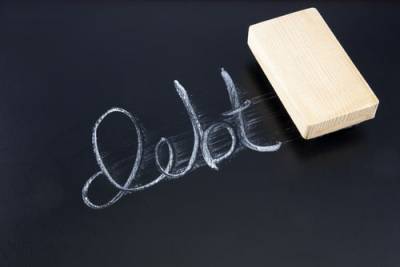How Are Second Mortgages Handled in Chapter 13 Bankruptcy Cases?
 If you are considering bankruptcy, you might be wondering what will happen to your home. While bankruptcy will allow you to discharge, or eliminate, most debts, your home mortgage is a loan that is secured by the equity you have in your home. In other words, the lender uses your home as collateral for the loan. If you fall behind on your payments or otherwise default on the loan, the lender can foreclose on your home. To avoid this, you may choose to file for Chapter 13 bankruptcy, which can actually help you pay off your mortgage over time, rather than having it forgiven. However, if you have a second mortgage or another junior loan on your home, such as a home equity line of credit, you may be unsure about how these loans will be treated during the bankruptcy process. In some cases, you may be able to use a process known as "lien stripping" to discharge these debts, which may reduce the total amount you will be required to repay.
If you are considering bankruptcy, you might be wondering what will happen to your home. While bankruptcy will allow you to discharge, or eliminate, most debts, your home mortgage is a loan that is secured by the equity you have in your home. In other words, the lender uses your home as collateral for the loan. If you fall behind on your payments or otherwise default on the loan, the lender can foreclose on your home. To avoid this, you may choose to file for Chapter 13 bankruptcy, which can actually help you pay off your mortgage over time, rather than having it forgiven. However, if you have a second mortgage or another junior loan on your home, such as a home equity line of credit, you may be unsure about how these loans will be treated during the bankruptcy process. In some cases, you may be able to use a process known as "lien stripping" to discharge these debts, which may reduce the total amount you will be required to repay.
Chapter 13 and Junior Loans
Under Chapter 13 bankruptcy, also known as reorganization bankruptcy, debtors are required to repay some of their debts over a three- to five-year period. During this timeframe, the court will create a repayment plan that details how much each creditor will be paid back. Unsecured debts, past-due amounts that are owed on secured debts, and other fees or expenses may be grouped into this repayment plan. This will allow the debtor to become current on their home mortgage or other secured debts, as well as any domestic support obligations they owe, and they will be able to repay some of what they owe to unsecured creditors. Once the full three- or five-year plan has been completed, any unsecured debts that remain will be discharged.
While secured creditors will generally be paid in full during a Chapter 13 bankruptcy, it may be possible to have second mortgages or junior loans discharged. Lien stripping may be an option if the value of a debtor's home has decreased and has become "underwater," meaning that they owe more on the primary mortgage than the home is actually worth. In these situations, there will be no equity in the home to secure a second mortgage or other junior loans, and these loans may be reclassified as unsecured debts. This will allow these loans to be "stripped off," and they will be discharged once the bankruptcy process is complete.
Contact Our Parker County Chapter 13 Bankruptcy Attorneys
Filing for bankruptcy does not necessarily mean that you will lose your home or other assets. In fact, Chapter 13 bankruptcy can actually give you some breathing room by allowing you to repay your debts over time. If you have a second mortgage on your home, you will likely be required to continue making payments toward that loan and other debts during your Chapter 13 bankruptcy case. However, there are some circumstances in which the amount you owe your mortgage can be reduced, and the requirement to pay off a second mortgage may be eliminated entirely once you have completed the bankruptcy process.
If you are considering filing for bankruptcy and have a second mortgage on your home, it is important to speak with an experienced attorney to discuss your options and ensure that you are taking advantage of all of the protections that are available to you under bankruptcy law. At Acker Warren P.C., our Wise County bankruptcy lawyers can help you understand your rights and options, and we will guide you through the bankruptcy process from start to finish. Call us a 817-752-9033 to arrange a free consultation today.
Sources:
https://homeguides.sfgate.com/can-keep-home-release-second-mortgage-debt-through-bankruptcy-47148.html
https://www.rocketmortgage.com/learn/how-bankruptcy-affects-mortgages









